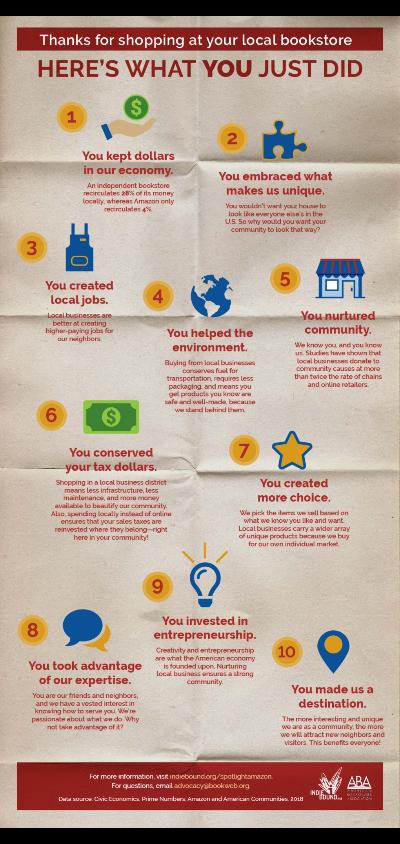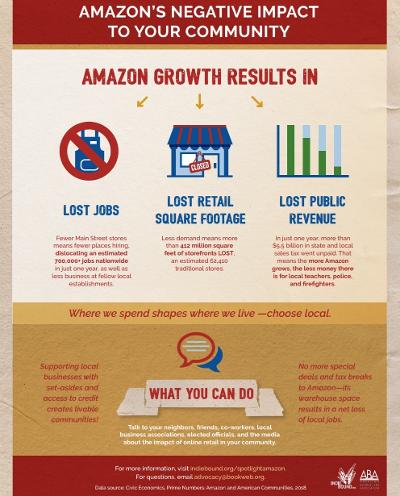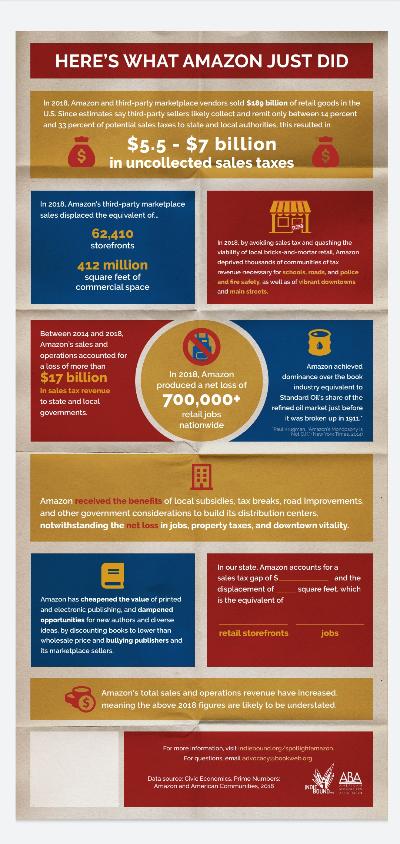*Please note this article is based on US research
I recently read an article about an online company that acts as the middle-man between indie book shops and their readers. I was not aware such a company existed and I wondered how many people are actually aware of the alternatives to Amazon.
The company is called Bookshop and in its own words, it is:
“an online bookstore with a mission to financially support local, independent bookstores.”
How does Bookshop do this?
The site supports local independent bookstores by providing an online book shopping service, that customers can use to source the book they want to read from an independent bookstore. 10% of the book price will be redistributed to local independent bookstores. If you choose a specific bookstore, then they will receive the full profit of the order. Bookshop also give away 75% of their profit margin. The aim of this initiative is to support the local community, which they feel is “essential to a healthy culture.” So far they have raised $7,221,221.26 in the US for local independent bookstores.
The platform is not available in the UK yet (it launches in November), but when I went to purchase a book for $14.99, I was informed I had raised $1.50 for local bookstores.
However, it is not the only company that is doing this.
Another US company called IndieBound is based on a similar model (it also has some impactful info graphics on it’s website) This one also supports:
“Locally owned, independent businesses (by pumping) money back into their communities by way of taxes, payrolls, and purchases. That means more money for schools, green parks, strong fire departments, and smooth roads, all in your neighbourhood.”

“Through IndieBound … readers find trusted, bookseller-curated reading options, newly discovered writers, and a real choice for buying… it is a “local first” shopping movement and a network of hundreds of independent bookstores sharing recommendations and connecting readers and authors.”
Why should we be looking at an alternative to Amazon?
Amazon draws funding away from local communities and contributes to the decline of town retail centres due to its online presence, resulting in job losses in the retail sector as more people order online. It does not invest in these communities either, leaving a deficit.
This info graphic demonstrates this perfectly and although US data, I think many countries can see a similar pattern.

So, why do we choose Amazon to buy books?
Mainly because it is easy, competitively priced, and convenient. If other companies could offer the same (Bookshop and IndieBound), then I am sure that consumers are more likely to choose a company that supports the well-being of their local community, themselves, and the environment. It is important that the consumers are made aware of these alternatives, including indie authors who commit themselves to Amazon.
Why would Indie authors choose to self-publish with Amazon?
Firstly, what is an indie author?
“Any author who self-publishes to sell, who takes publishing seriously, wants to reach as many readers as possible and grow a profitable author-publishing business.”
Alliance of Independant Authors: Self-Publishing & Independent Authors FAQ
With this definition in mind, Amazon would tick all the boxes for an indie author:
- It has the largest platform world-wide to sell books online.
- It makes self-publishing a book easy, convenient, and cheap.
- Books can be printed on demand, at no cost to the author.
- Advertising can be purchased on the site, creating greater visibility to Amazon users.
- Everything can be managed from start to finish with KDP (Kindle Direct Publishing) and they have many tools to help first time authors.
However,
Authors are also incentivised to join Amazon’s KDP select service, whereby authors agree for their eBook to only be available online through the Amazon Kindle platform. Why would an author agree to this? Amazon has an 80% market share (however this isn’t the case in all countries) and authors who subscribe to this platform get additional benefits including a share of the Kindle Direct Publishing Global Fund. The money from this fund is generated by readers who pay a monthly subscription which gives them unlimited access to the eBooks enrolled on this programme. Every time a reader reads one of these books, the author gets a percentage of the revenue. No readers = no profit.
By providing this option, Amazon ties writers into their programme by not allowing them to publish their eBook elsewhere, thereby creating a monopoly and reducing competition. The appeal for indie authors who want to make money writing is obvious, however in truth indie book-stores, indie online eBook-stores and indie writers should be working together.
Indie writers want autonomy, creative freedom, and control over their work. Indie book shops are also doing the same in their field. It seems when it comes to publishing, indie authors have failed to realise they are giving up these facets to huge corporations that are failing to support their business ideals. It’s a tough decision, when a writer needs to make money, drive awareness, and make a name for themselves, the appeal of Amazon is sometimes too great to resist, rather than taking a chance on the indie bookstores and their partners.
